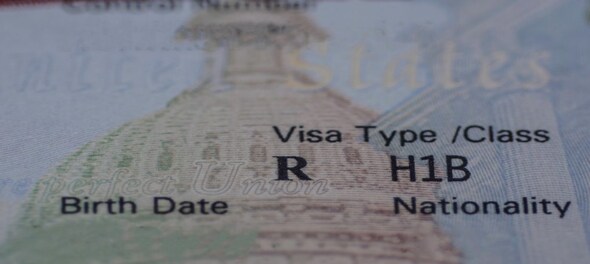
The United States is going to introduce a new immigration Bill that may have drastic consequences for Indian students and workers in the country. The American Tech Workforce Act of 2021 will not only have wide-ranging consequences for those looking to work in the US, but also for Indian IT companies that have been operating in the US.
Introduced in the US House of Representatives by Republican Study Committee Chairman Jim Banks the new Act will make it harder for companies in the US to hire foreigners and students. Banks has stated that the law is intended to hold big tech companies accountable.
“Big Tech is setting aside some of the most lucrative and valuable career opportunities in America and giving them exclusively to foreign guest workers. They’re cutting out Americans to save a few bucks. It’s domestic outsourcing.”
The Bill has not yet been passed and needs to be approved by both the House of Representatives and the Senate before it can be enforced as a law.
What is the new legislation?
Under the proposed Bill, optional practical training (OPT) will be scrapped. OPT is a procedure that allows those on student visas to be employed in the United States for up to three years if they are from the STEM (science, technology, engineering, and mathematics) discipline. The OPT scheme has been a huge draw for STEM students from other countries as they get to earn some important work experience while studying at the same time.
Other changes to the H-1B visa procedure include bringing down the validity of the visas sponsored by third party companies from three years to just one year.
Also read: US records highest drop in H-1B visa holders in a decade amid relentless pandemic: Report
The other provisions of the Bill includes introducing a wage floor compensation for H-1B visa recipients. This wage floor compensation will be equal to the higher end of the annual wage paid to an American worker for the position or $1,10,000, whichever is higher. The Bill also seeks to limit the degree to which companies can sponsor visas for third party contract workers.
“This shocking disregard for American workers and their role in our nation’s future is unpatriotic. We must fix Big Tech’s incentives, so they begin putting Americans first,” Banks added.
What does this mean for Indians?
For US subsidiaries of Indian IT companies, the wage floor means that the companies will immediately have to start spending more on labour as hiring non-American workers would become much more costly.
Additionally, all companies in the US that are hiring workers on the basis of H-1B visas will have increased administrative costs as they would have to file for reapplication every year instead of every three years.
For students and workers, it means that fewer companies would willing to take them on and give them the opportunity to work in the US if the Bill is passed. Indian, and other foreign, workers would find it increasingly difficult to apply for positions in the US when competing against American candidates.
(Edited by : Shoma Bhattacharjee)
First Published: Dec 14, 2021 6:50 PM IST
Check out our in-depth Market Coverage, Business News & get real-time Stock Market Updates on CNBC-TV18. Also, Watch our channels CNBC-TV18, CNBC Awaaz and CNBC Bajar Live on-the-go!


Lok Sabha Election 2024: Gurugram gears up for crucial polls amidst economic boom and civic woes
Apr 24, 2024 11:41 PM
Lok Sabha Election 2024: Crucial seats up for grabs as Rajasthan, Maharashtra, Bihar gear up for 2nd phase of polls
Apr 24, 2024 11:40 PM

